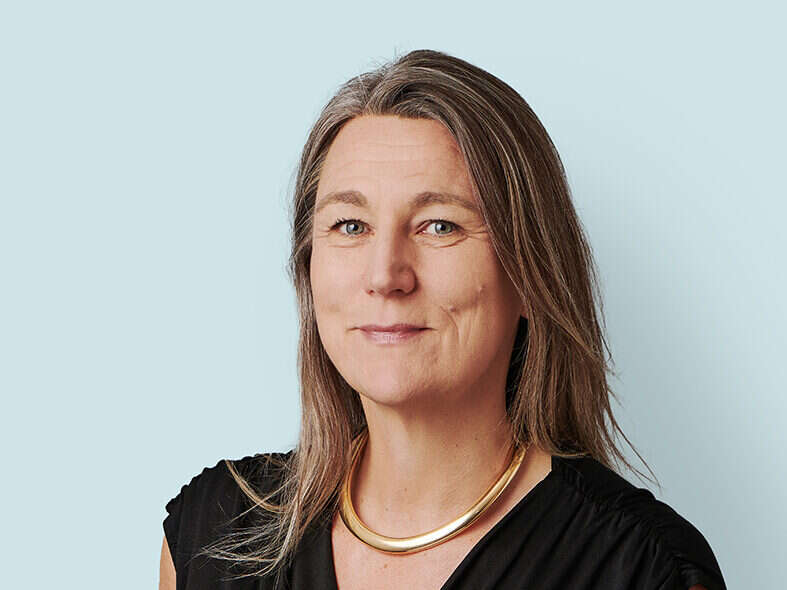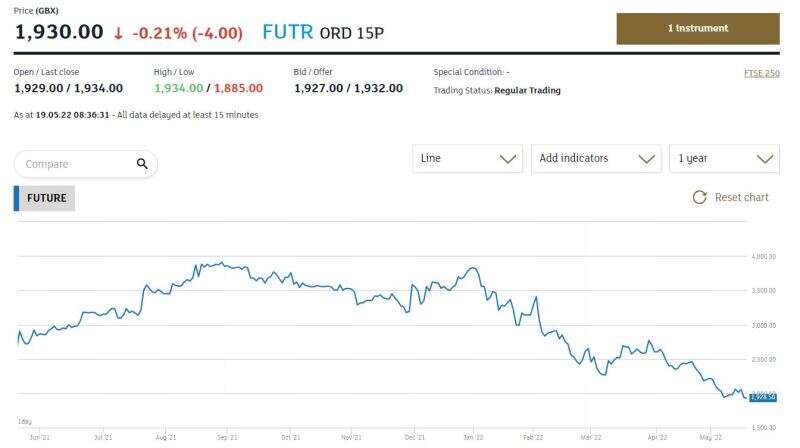
Magazine publisher Future has reported record revenues and profits for the first half of its financial year, and paid staff part of their annual bonus early in view of the UK cost of living crisis.
The half, which ended on 31 March 2022, covered Future’s £300m acquisition of Dennis, the consumer media publisher that oversees brands including The Week, Kiplinger and MoneyWeek.
Future reported its adjusted operating profits for the six months to March were up 51% year-on-year to £134.5m, while revenue was up 48% to £404.3m.
The revenue rise, it said, reflected “a combination of continued organic growth and a contribution from acquisitions with organic growth of 4% in the half, and an average of the two half-years of 13%”.
Digital advertising revenue was up 10% in the half-year, but affiliate advertising declined the same amount over the period. The business said the decline was “broadly in line with the benefit we saw from the pandemic-related income of £5m in the prior year that we had noted in previous results”.
Averaged across both the most recent half-years, Future reported affiliate revenue remained up 23%. Organic subscription revenue growth – i.e. growth not related to acquisitions – stood at 5%.
Net debt at the end of the half-year was £388.7m, up from £176.3m at the end of September 2021. Leverage – net debt as a proportion of adjusted EBITDA – stood at 1.46 at the end of March 2022. This was above the leverage at the end of September, 0.8, but Future said it was down from the figure of 1.9 immediately following the Dennis acquisition.
Future’s share price fell almost 11.4% across the day before finishing 5.5% down at £19.30 a share, per Dow Jones’ Marketwatch.
Future, in common with other publishers, has seen its share price suffer over the year. At its peaks in August and December 2021, Future’s shares were trading just shy of £40 each.

Asked by Press Gazette what the results mean for journalists working at Future, chief executive Zillah Byng-Thorne said: “They’re working for a business which is incredibly robust and performs consistently well during good times and bad times.
“Certainly, in the last few years, there’s been a fair mix of that. The consistent thing through that period has been the strength and performance of our business.
“When we see headlines about mass lay-offs at other businesses, I think our colleagues feel very confident about working here for a high-growth organisation.”
[Read more: CEO Zillah Byng-Thorne on the rise and rise of Future as mag giant defies Covid to more than double profits]
Byng-Thorne told Press Gazette that, in light of sharply rising inflation, the company had decided to issue part of its typical end-of-year bonus early to all staff, with the exception of the executive leadership team.
“We made the decision, given the headlines just now, to actually make an interim payment in relation to our bonuses...
“Given the backdrop just now we just thought people probably could do with some of that money rather than just waiting.”
Byng-Thorne said the most striking thing from the results was that they “had expected that the organic audience would decline during the period [encompassing] the anniversary of the Covid audience calm [following the lockdowns], and it's been very pleasing to see organic audience growth return”.
Future announced earlier this year it had acquired US fashion and lifestyle brand Whowhatwear. It also reported that its US online audience reach had risen two percentage points year-on-year to 35% - part of a broader goal to reach half of all Americans online.
Asked if the company planned to buy more magazines in US markets, Byng-Thorne said: “A big part of [reaching the half of all Americans goal] is continuing to write organic content across our existing brands for those audiences. We would expect that there will be more acquisitions in the US to follow.”
And when asked if there were other international audiences she was targeting, Byng-Thorne said only that Future’s strategy is “looking for opportunities in English-speaking markets”.
Will Future's revenue and profit growth momentum run out at some point?
“Good question," she replied. "Can I say no?"
She continued: “I think we’ve built a really strong business with our platform that helps us scale quickly and drive margin improvements. And we spent a lot of time, when we thought about our strategy, to build something that would deliver revenue growth but more importantly, convert into profit growth and cash conversion.”
[Read more: Future Publishing timeline - Company's journey from zero to £4bn market cap media giant]
Picture: Future
Email pged@pressgazette.co.uk to point out mistakes, provide story tips or send in a letter for publication on our "Letters Page" blog
